 |
| The development of the private economic sector is still not commensurate with its potential. |
On May 13, Vietnam Finance Investment Magazine organized the seminar "Private economy: Motivation to rise from Resolution 68".
Private economy needs breakthrough mechanism to develop
The private sector is playing an increasingly important role in Vietnam's development. With more than 940,000 enterprises and 5 million business households in operation, this sector contributes significantly to the economy, accounting for an estimated 50% of GDP, more than 30% of total state budget revenue and creating up to 82% of total employment.
Not only that, the private economy is also a pioneering force in innovation, contributing to hunger eradication, poverty reduction and social stability. Many Vietnamese private enterprises have grown, built prestigious brands and affirmed their position in the regional and international markets.
However, according to Associate Professor, Dr. Tran Quoc Toan - former Deputy Head of the Government Office , development practice shows that the private economy still faces many challenges. The three main reasons pointed out are: inadequate and inconsistent awareness of the role of this sector; institutions, policies and enforcement apparatus still have many bottlenecks, not meeting development requirements; and the internal strength of the private economic sector itself is still limited, not really becoming a strong enough force.
Looking back at history, Associate Professor Dr. Tran Quoc Toan said that due to the specific resources after liberation, Vietnam had a period of narrowing the role of the private economy. However, reality has proven that it is impossible to achieve sustainable development without the contribution of this sector. Therefore, a correct, complete and objective view of the role of the private economy is an urgent requirement in the current period.
For the private economy to truly develop strongly, it is necessary to solve major problems such as difficulties in accessing land, especially in large cities like Hanoi, where hundreds of millions of square meters of agricultural land are stuck in policies; limitations in accessing credit capital; technology support policies that lack motivation; and the connection between businesses in the value chain is still fragmented. The business ecosystem, especially in the agricultural sector, which is the mainstay of the economy, has not yet been clearly formed.
To unlock the potential of the private economy, Associate Professor Dr. Tran Quoc Toan said that there should be mechanisms to facilitate businesses to participate more deeply in the supply chain and develop effective production linkage models. The pyramid linkage model in Germany, where small and medium-sized enterprises support each other in the value chain, could be a suggestion worth considering for Vietnam.
Resolution 68: Expectations of a breakthrough for the private economy
Resolution 68 was assessed by Vice Chairman of Deo Ca Group, Mr. Nguyen Huu Hung, as a breakthrough document, which for the first time extensively mentioned the problems that have existed for 40 years of Renovation.
"We have achieved many successes, but it cannot be denied that there are still great challenges. Frankly recognizing, clearly identifying and finding solutions to overcome them is a positive sign. The Resolution will create conditions for the private economic sector to be recognized for its true role and have the opportunity to develop strongly," Mr. Hung shared.
Mr. Nguyen Huu Hung noted that, in addition to support from the Party and the State, private enterprises themselves also need to proactively change, improve quality, governance, culture and build appropriate development strategies.
Sharing the same view, Dr. Bui Thanh Minh, Deputy Director of the Office of the Private Economic Development Research Board (Board IV) said that Resolution 68 was built on two core mindsets: "unleashing" and "development". The "unleashing" mindset focuses on solving long-standing problems such as land, capital and unfair competition. Meanwhile, the "development" mindset classifies private enterprises into three groups to have appropriate support policies: leading enterprises associated with national problems, pioneering enterprises and small enterprises.
Dr. Le Xuan Nghia, former Vice Chairman of the National Financial Supervision Committee, said Resolution 68 is an important document, demonstrating the determination to promote the development of the private economy.
However, Dr. Le Xuan Nghia emphasized: "To keep up with developed economies, Vietnam needs to act decisively, have a strategic vision and implement it seriously. The resolution is an important milestone, but the key is to have synchronous and decisive action so that the resolution can truly come into life."
Dr. Le Duy Binh, Director of Economica Vietnam, further analyzed that Resolution 68 not only aims at the goal of private economic growth but also affirms the role of this sector in the socialist orientation. According to Mr. Binh, if developed in the right direction, the private economy will become an important driving force to realize the goal of "rich people, strong country, fair, democratic and civilized society".
Source: https://thoibaonganhang.vn/nghi-quyet-68-coi-troi-tiem-nang-kinh-te-tu-nhan-164107.html


![[Photo] National Assembly Chairman Tran Thanh Man receives United Nations Secretary-General Antonio Guterres](https://vphoto.vietnam.vn/thumb/1200x675/vietnam/resource/IMAGE/2025/10/25/1761390815792_ctqh-jpg.webp)



![[Photo] Prime Minister Pham Minh Chinh receives United Nations Secretary-General Antonio Guterres](https://vphoto.vietnam.vn/thumb/1200x675/vietnam/resource/IMAGE/2025/10/25/1761390212729_dsc-1484-jpg.webp)
![[Photo] Prime Minister Pham Minh Chinh and United Nations Secretary-General Antonio Guterres attend the Press Conference of the Hanoi Convention Signing Ceremony](https://vphoto.vietnam.vn/thumb/1200x675/vietnam/resource/IMAGE/2025/10/25/1761391413866_conguoctt-jpg.webp)





















![[Photo] General Secretary To Lam meets with General Secretary and President of Laos Thongloun Sisoulith](https://vphoto.vietnam.vn/thumb/1200x675/vietnam/resource/IMAGE/2025/10/25/1761380913135_a1-bnd-4751-1374-7632-jpg.webp)






































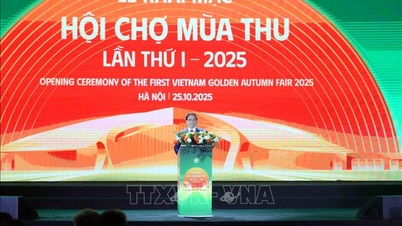







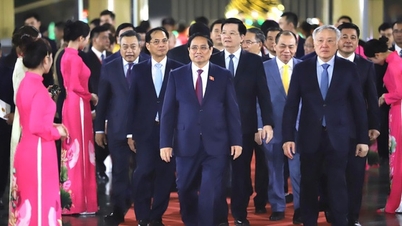

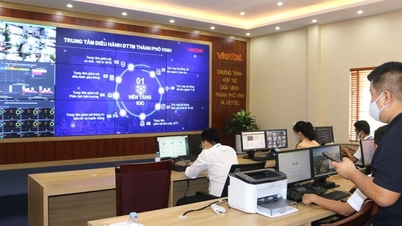


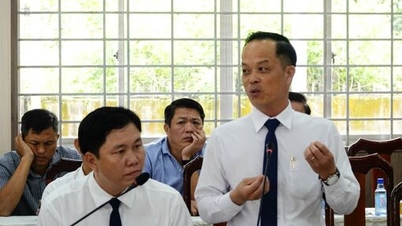





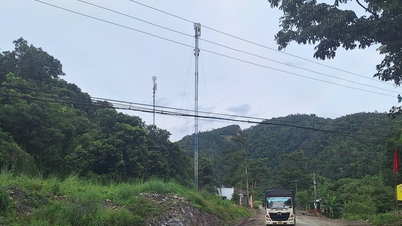


















Comment (0)